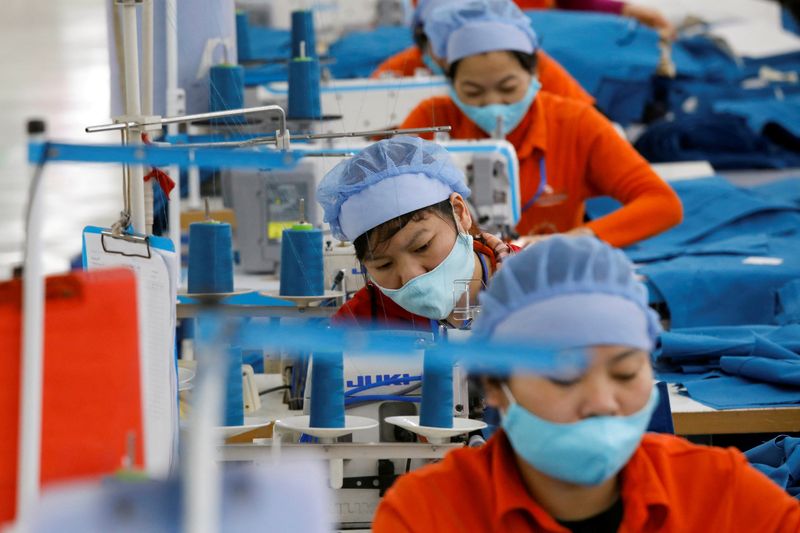By Francesco Guarascio
HANOI (Reuters) - The Organisation for Economic Cooperation and Development told Vietnam last week that handouts to big firms to offset higher levies under a global overhaul of tax rules would be problematic, a person familiar with the discussions said.
Reuters exclusively reported last week that Vietnam was planning subsidies worth hundreds of millions of dollars to partly compensate multinationals with big investments in the country, including Samsung Electronics (OTC:SSNLF) and Intel (NASDAQ:INTC), for the higher taxes they will face from next year.
Under the new rules shepherded by the OECD, companies paying less than 15% in a low-tax jurisdiction will from January face a top-up levy either in that jurisdiction or in their home country.
Vietnam's plan is the first reported attempt worldwide to find a partial workaround to the new global rules, but other countries are considering similar moves, the person familiar with the talks said, noting the OECD warned of risks these arrangements may pose, potentially "compromising the ultimate purpose" of the reform.
The rules were mainly devised to tackle tax planning practices which have allowed multinationals to pay very low or no tax at all. Usually this is done by basing their headquarters in tax havens, such as Caribbean islands or small European states, where often they had no production activities.
Vietnam is a major manufacturing hub heavily reliant on foreign investment which it has been able to attract over the decades partly thanks to tax sweeteners, but also because of low labour costs, proximity to China, free trade deals and stable government.
Hanoi wants to introduce a top-up tax, but fears that without some sort of compensation, the higher levy could make it less attractive to large multinationals, which have been asking for compensation in private talks. In 2019, Samsung (KS:005930) paid as little as 5.1% in tax in one province.
OECD WARNING
In meetings in Hanoi last week, OECD officials told Vietnamese government officials that if subsidies to multinationals were found to be direct compensation for the higher levy, "the domestic top-up tax would be disqualified," the person said, declining to be named because the information was not public.
The person said the OECD made it clear that large companies would therefore have to pay the top-up levy in their home country, for instance South Korea in the case of Samsung.
OECD senior tax official John Peterson declined to comment about the outcome of the meeting, citing confidentiality rules.
However, he said if one country compensates a multinational with "targeted benefits, for example in the form of grants or tax credits" it would no longer be able to raise revenues from a top-up tax.
In that case, the company "will simply be subject to additional top-up tax, equal to the same amount, in another jurisdiction."
Vietnam's government did not reply to Reuters requests for comment.
Asked about the planned measures at a press conference on Monday, Nguyen Thanh Lam, deputy information minister said: "It's a broad and complicated matter. Many government agencies are involved and studying it."
Vietnam's planned subsidies would be in the form of after-tax cash handouts or refundable tax credits, according to initial plans subject to changes, Reuters has reported.
That would benefit companies facing higher levies due to the global tax reform, but also firms which are not impacted by the overhaul, another source familiar with the separate talks between companies and the Vietnamese government told Reuters.
Decisions on compensation would be taken case by case and no direct link would be established between handouts and the top-up tax, the source added.

Asked whether the planned rules could be considered a direct subsidy to offset multinationals' higher taxes, the OECD declined to comment as Vietnam's plans had not been finalised.
Under the new rules, countries can introduce tax incentives for companies, but their laws must be reviewed and supported by tens of nations worldwide which have agreed to the global reform.